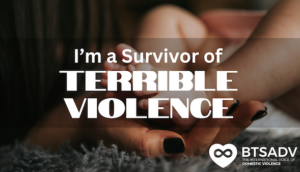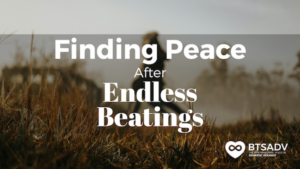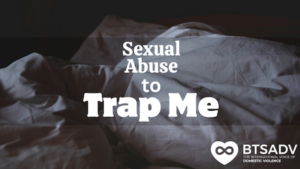By Rebecca Lynn
You left your abuser. There’s no more walking on egg-shells, accusations of cheating, feeling as if you never do anything right, or hiding your bruises. You can’t wait to jump back into life before the abuse, like reuniting with estranged family and friends, picking up old hobbies, and getting back your sense of independence. That abusive part of your life is over; however, what many victims don’t know is that domestic violence doesn’t end when you walk out the door– there is an aftermath that can continue for years. You are proud of yourself and feeling empowered to make a new life, and you should be, but you will need this empowerment and support from others to get you through the many “new” challenges that occur after leaving an abuser.
When you end an abusive relationship, the first step has been done–leaving the abuser. Only others who have been in similar situations know what an amazing feat that is. However, recovery from abuse is a process, one that can’t be rushed, ignored, or skipped. The bruises may be gone, and the scars barely visible, but not all wounds are seen. In fact, it’s the emotional abuse that you have been through that will stick with you and create a whole new battle. It is usually the mental war that survivors fight after leaving, which leads them back to the familiarity of their abuser’s cycle. On average, a victim of domestic violence leaves their abuser seven times before they leave for good. But knowing this can help you stay strong, beat the statistic, and not go back to an abusive relationship because things are unfamiliar.
Your abuser may have criticized you, controlled your actions, shamed, and belittled you to the point that your self-esteem is nearly non-existent. Some victims are able to disassociate from the abuse–both physically and emotionally–for the sake of survival. If this was you, you are not alone, but you will find that when you get some distance from your abuser, your ability to feel will come back and the emotions you feel may be confusing. According to Women’s Aid, the survivor is likely to feel grief, pain, and a deep sense of loss. They may feel betrayed, unable to trust, and emotions that are comparable to bereavement. This is heavy stuff, and on top of it, most survivors experience complex PTSD, which is common among soldiers that have been at war and have seen trauma day in and day out.
5 Stages of Recovery
Just like losing a loved one, leaving an abuser has stages of recovery that can often take survivors by surprise. According to DomesticShelters.org, there are 5 stages of recovering after leaving your abuser.
- Denial: Denial is a coping mechanism that your psyche uses to protect you from becoming too overwhelmed. This explains why you may not want to believe that you were abused and are often wish and wonder if things can get better. You may have a hard time understanding that the life you believed you would have didn’t happen.
- Anger: This definition is self-explanatory; however, the things that anger you can be a little confusing. Of course, you will be angry at your abuser, but anger can also be pointed to other directions, like God, fate, friends and family, and even yourself.
- Bargaining: One of the most difficult stages for a survivor is bargaining. It is here that you reach an emotional limit. The emotional battle of leaving is seen as too difficult, and victims often believe that their abuser can change–this is where you are at the highest risk of going back.
- Depression: During this stage, some victims feel hopeless, exhausted, disconnected from others, use self-medicating mechanisms such as drugs and alcohol, and feel as if they are in a never-ending situation. To make matters more confusing, anger and depression are often battling each other. You may feel sad and miss your abuser, but then you become mad at yourself for missing someone who hurt you.
- Acceptance: This is the last stage where you accept that the relationship is over. This doesn’t mean you won’t feel anger or depression–these emotions are perfectly normal. Victims reach this stage at their own pace and it is very common for them to experience the earlier stages more than once. There is no wrong way to heal.
There are many ways that you can work on healing, including distracting yourself from the emotional battles and moving closer to where you want to be. Women’s Aid provides a list of things to do to help in your recovery:
- Make (and take) time for yourself,
- Do something you are good at and enjoy–something you may have not done while with your abuser,
- Join a workout class,
- Try something new,
- Use your creativity,
- Learn and practice relaxation techniques,
- Take care of yourself–eat and sleep well,
- Talk about your experiences, whether to a group, a counselor, or sharing your story with an organization like BTSADV. Saying the words out loud is both therapeutic and helpful to others who may be struggling with the recovery process.
You may want things to be perfect right away, instantly changed, and not have to deal with all those stages, but it is important that you go through the recovery process and that you rely on your resources and self-care during each stage of healing. The mind and the heart can be a powerful thing, there will be times that it may appear easier to go back, but very few abusers change, and the seven times statistic proves this. You are a survivor…share your story, break your silence.
If you or someone you know is in an abusive relationship, there is help. You can visit the Break the Silence Against Domestic Violence website at www.breakthesilencedv.org or chat with one of our helpline advocates at 855-287-1777.










